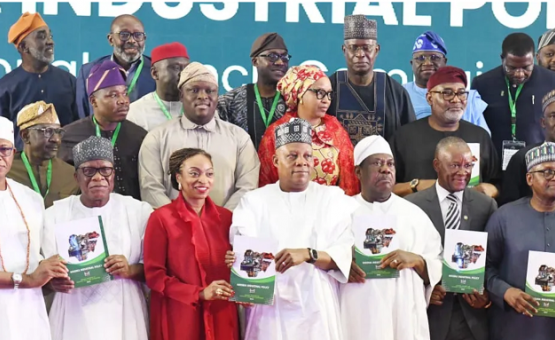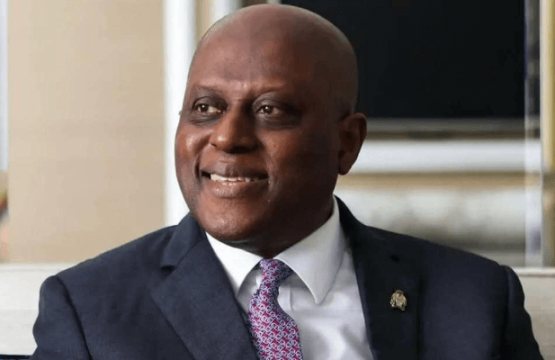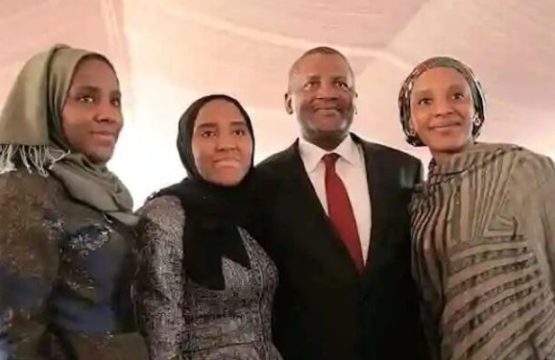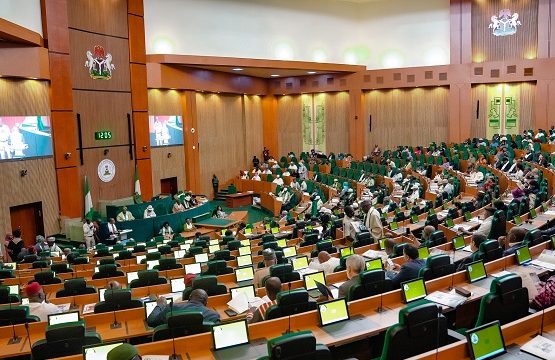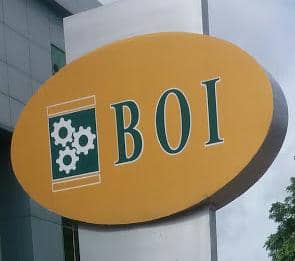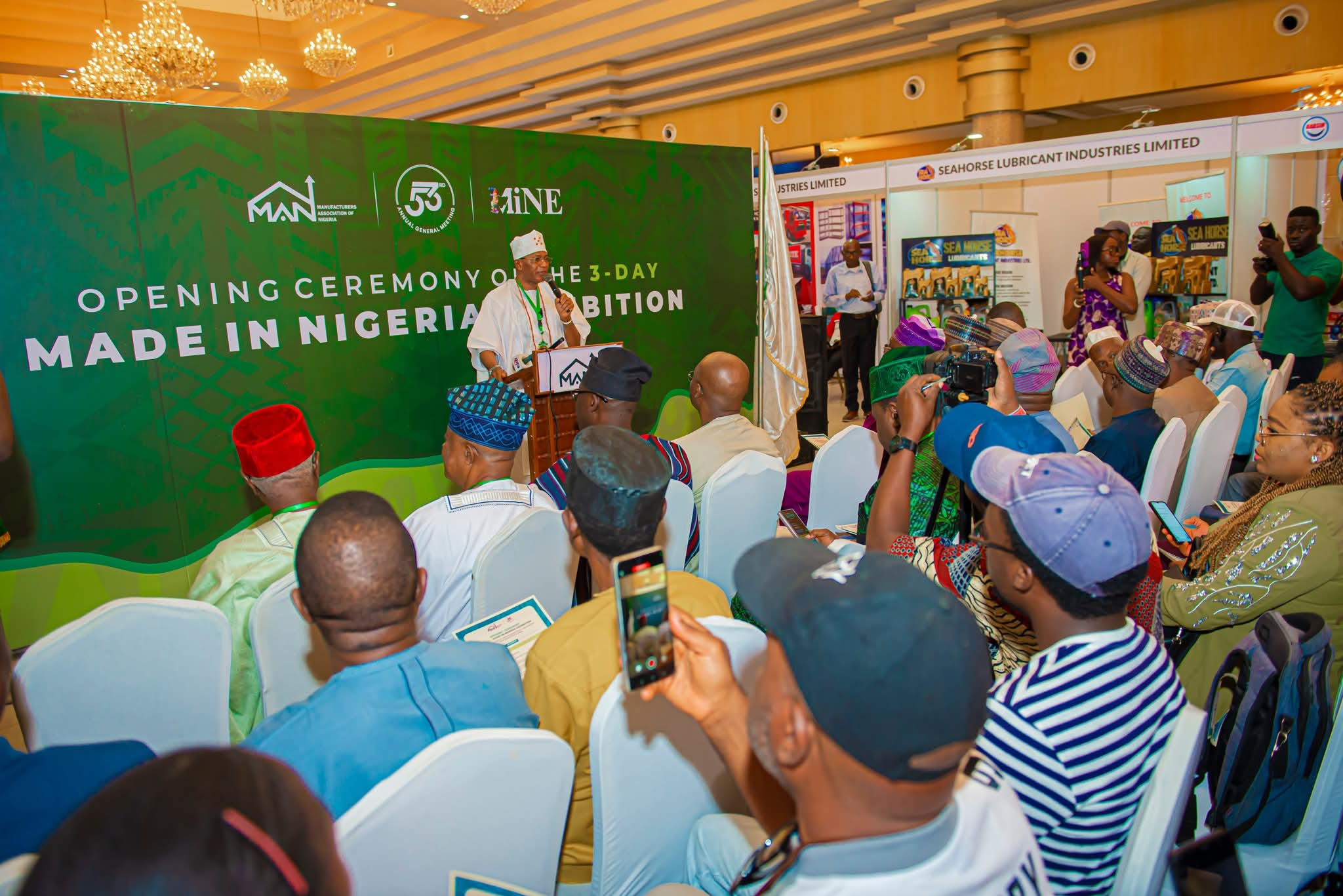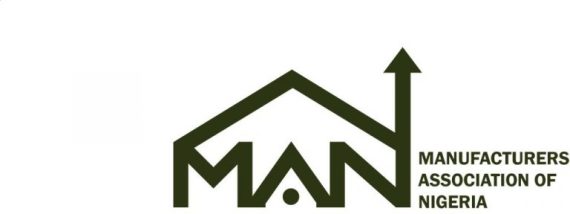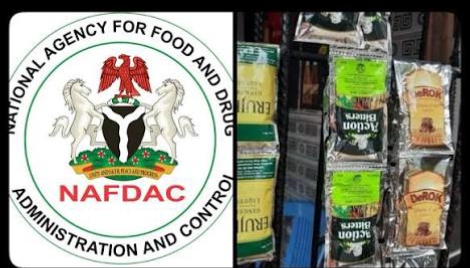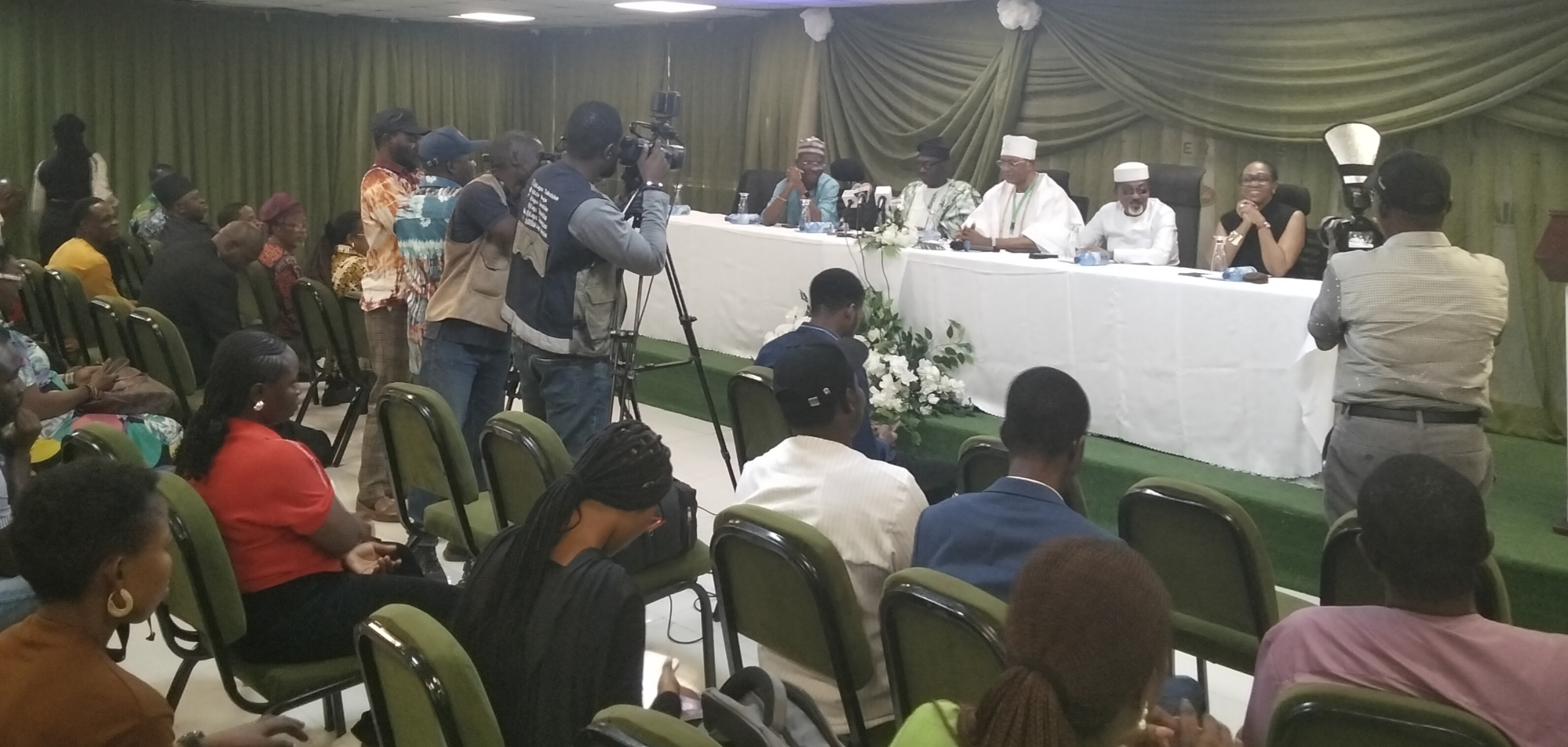• Francis Meshioye, the President of MAN, address participants during the AGM /MiNE exhibition
For 53 consecutive years, the Manufacturers Association of Nigeria (MAN) has been passionately urging Nigerian households and all levels of government to prioritize buying locally made, high-quality products.
Do these patriotic calls imply that Nigerians should refrain from purchasing any foreign-manufactured goods? Not at all.
Francis Meshioye, the President of MAN, aptly stated, “Every industrialised nation began by nurturing local content and leveraging procurement as a tool for scaled production and economic development.
Nigeria must do the same. This is not about closing our doors to the world but about opening the right doors to Nigerian solutions, Nigerian ingenuity, and Nigerian jobs.”
Why is this important?
In response, Senator John Enoh, Minister of State for Industry, Trade and Investment, announced that the government will initiate a national campaign to promote Made-in-Nigeria goods as part of the Nigeria First Policy, aiming to reduce import dependency.
Consider the latest data from the National Bureau of Statistics, which reveals that the value of manufactured goods imported between January and June 2025 alone was N15.39 trillion, while exports during the same period amounted to only N1.09 trillion.
Had the more than N15 trillion been spent on purchasing manufactured products locally, one can imagine the ripple effect it would have had on domestic companies like Nestle Nigeria PLC, Kam Industries Nigeria Limited, and Erisco Foods Ltd, among others.
This increased patronage would enable these companies to pay salaries on time, boost industrialisation, create more jobs in the private sector, expand their operations to other regions of the country, pay taxes to the government, and provide dividends to shareholders. Overall, this would lead to a happier and more prosperous society.
Given this context, the association deemed it necessary to utilise the 5th Adeola Odutola Lecture (AOL2025) and the Made-in-Nigeria Exhibition (MiNE2025), themed ‘Prioritising Patronage of Made in Nigeria,’ to remind well-meaning Nigerians of the importance of strengthening our national identity, safeguarding our security, achieving self-sufficiency, and driving sustainable economic growth.
They spotlighted the Federal Government’s newly introduced “Nigeria First” Policy, which mandates Ministries, Departments, and Agencies (MDAs) to prioritize locally sourced goods and services.
At the event held from October 14-16 at the Lagos Oriental Hotel in Lekki, Francis Meshioye reiterated the crucial role of manufacturing in Nigeria’s economic transformation.
He described the policy as a significant step toward achieving economic self-reliance, industrialisation, and national pride, and he urged for inclusive and deliberate implementation across all sectors.
To ensure that the government’s well-intentioned policy does not become “a paper tiger” — a document merely gathering dust — Meshioye called for the establishment of a structured and independent monitoring mechanism. This would guarantee the consistent patronage of Made-in-Nigeria products across government and corporate procurement channels.
He emphasised, “We must establish a functional, independent compliance agency tasked with auditing patronage levels, recommending corrective actions, and publicly disclosing performance across Ministries, Departments, and Agencies of government.
Let it be clear which institutions are genuinely driving local economic empowerment and which are not. Corrective and disciplinary measures must be taken against the latter.”
Meshioye also challenged corporate Nigeria, including multinationals and conglomerates, to align with the “Nigeria First” vision by sourcing raw materials, packaging, and inputs locally.
He expressed concern that outdated procurement practices and inaccurate cost assumptions have led many firms to import goods that are already produced locally to global standards.
“Corporate Nigeria must recognise the value of local sourcing. Many inputs are available domestically and meet international quality benchmarks.
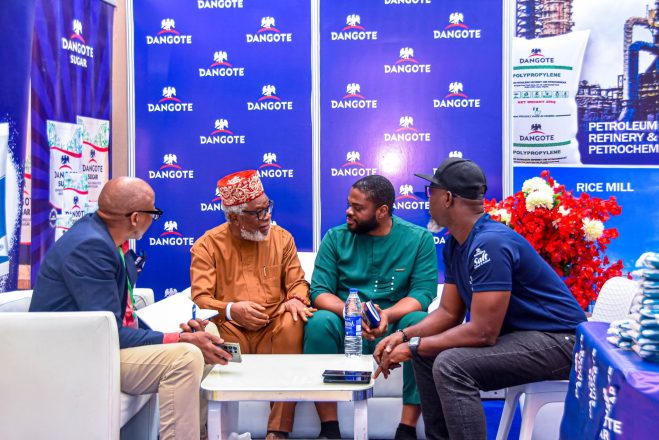
•Networking at the Dangote Group’s pavilion during the exhibition
A shift in procurement habits will reinforce industrial growth and reduce our dependence on imports,” Meshioye stated.
He further noted that for over 50 years, the government has celebrated local content in speeches and policy documents, yet failed to enforce it in practice.
“Many ministries, departments, and agencies still rely on imports, even where superior local alternatives exist. We must move from policy pronouncements to practical implementation,” he insisted.
“We must be intentional, just as China is with the Made-in-China 2025 initiative and India is with the Atmanirbhar Bharat program. Every successful industrial nation has adopted similar strategies,” Meshioye advised.
He insisted that these Executive Orders must be fully implemented, monitored, and enforced, stressing the need for consequences for non-compliance.
“Policy inertia has delayed our progress for too long. We must transition from policy pronouncements to legislative backing and bold execution.”
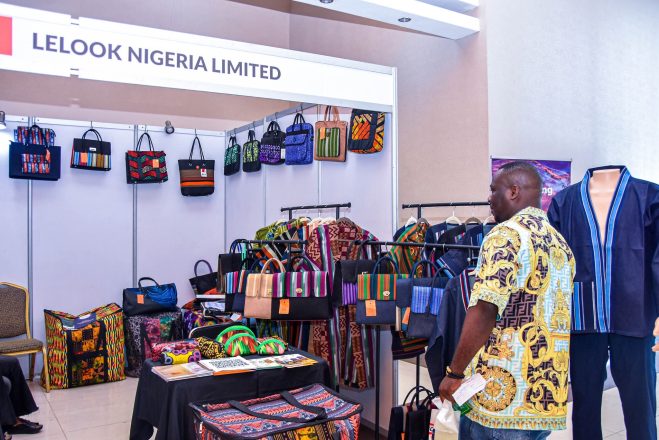
• High quality Made in Nigeria bags by Lelook Nigeria Limited.
In his keynote address, the United Nations Industrial Development Organisation (UNIDO) representative and Director, Sub-Regional office in Nigeria and ECOWAS, Philbert Abaka Johnson, said that the’ Nigeria First’ policy must go beyond rhetoric and patriotic sentiment and can only succeed with deliberate and coordinated action from all levels of the society.
He asserted that a strong manufacturing base is the bedrock of sustainable development, urging that swift interventions must be carried out on the economy and they must be deliberate, coherent and coordinated, especially in the areas of infrastructure and energy, access to finance, technology, market access and trade facilitation.
Alhaji Aliko Dangote, President of Dangote Group, emphasised that the Nigeria First Policy is a key opportunity for sustainable industrialisation.
Speaking through Engr Mansur Ahmed, he outlined eight expectations for the policy’s success, including making it a binding law with enforcement measures, ensuring stability, and promoting local value creation.
He stressed the need for clear legislation, institutional support, and alignment among government and industry stakeholders.
Dangote highlighted the importance of enhancing access to finance and leveraging the African Continental Free Trade Area to boost local competitiveness.
He noted that while the government has made strides, fully embracing this policy will enhance Nigeria’s competitive position.
In response, Senator John Enoh, Minister of State for Industry, Trade and Investment, announced that the government will initiate a national campaign to promote Made-in-Nigeria goods as part of the Nigeria First Policy, aiming to reduce import dependency.
He projected that this initiative could boost manufacturing by 6% and create over 500,000 jobs in three years.
Enoh reinforced the importance of quality production and collaboration between manufacturers and the government for effective policy planning.

